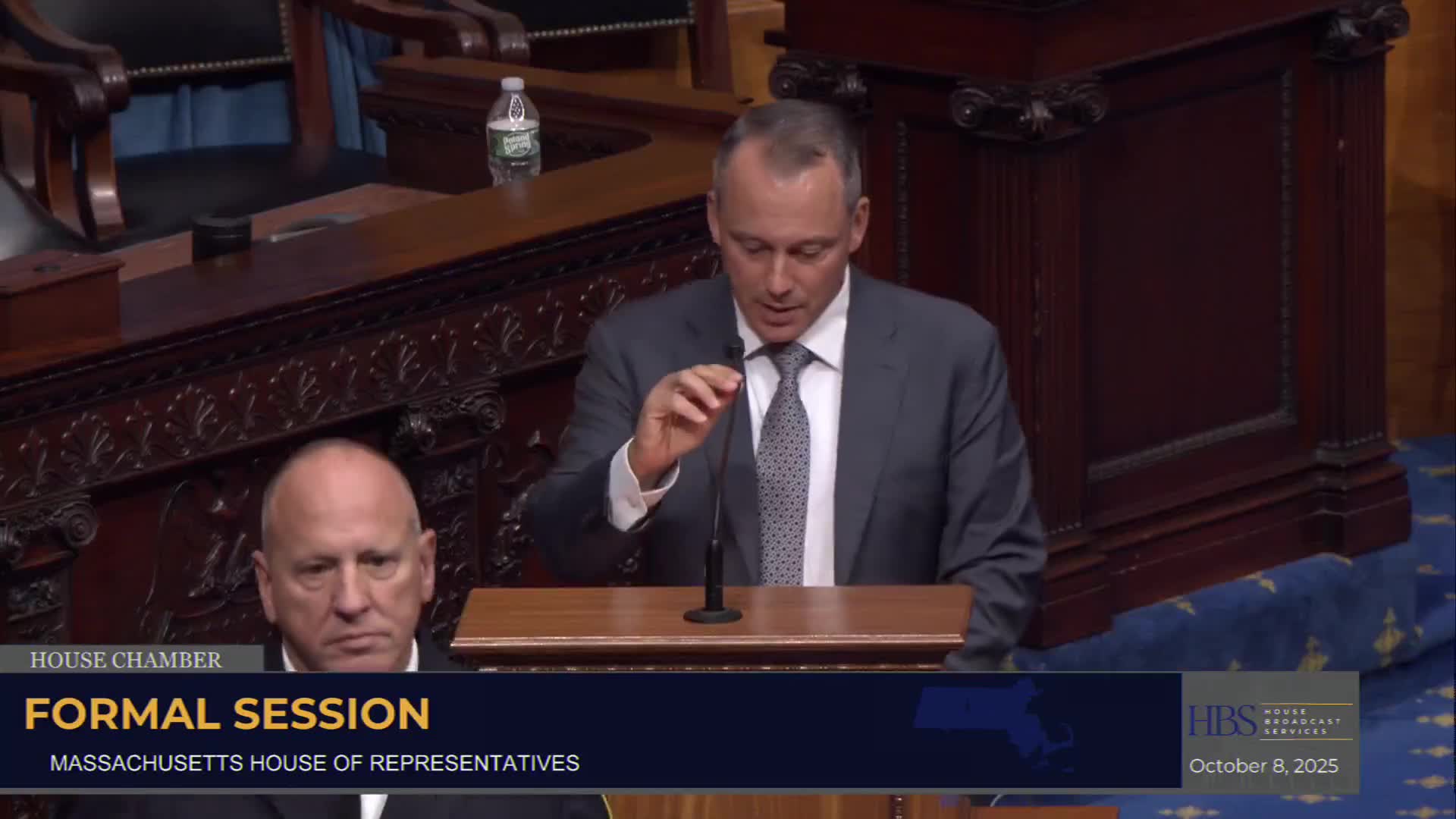Mass. House overrides multiple governor vetoes, preserves nursing home, charter school and shelter funding
Get AI-powered insights, summaries, and transcripts
Subscribe
Summary
The Massachusetts House voted on a series of roll-call motions to sustain numerous sections of the FY26 appropriation bill notwithstanding the governor—s vetoes, keeping funding for nursing facility rates and add-ons, charter school reimbursements, trial court staff and homeless shelter workforce supports, among other line items.
The Massachusetts House voted on a series of roll-call motions on the FY26 general appropriation bill to sustain multiple line items notwithstanding vetoes issued by the governor, preserving funding for nursing facility rates and add-ons, charter school reimbursements, trial court administrative staff and homeless shelter workforce assistance.
Representative Michael Woods of Boston urged members to override a portion of the governor—s vetoes, saying the budget enacted in June was "fiscally responsible" and that the House was proposing "to override around $70,000,000 worth of vetoes." He listed specific items the House sought to preserve, including "$25,000,000 for nursing facility rates and add ons" and "nearly $20,000,000 for the charter school reimbursements."
Why it matters: Sustaining these line items keeps planned FY26 spending in place for health, education and shelter programs that the House had included in its enacted budget. Representative Woods told colleagues the overrides would support obligations such as charter school reimbursements under the Student Opportunity Act and operational needs in nursing facilities and trial courts.
Most votes were taken by recorded roll call on questions presented by the committee on ways and means and related committee reports. The clerk displayed multiple tallies across separate roll-call votes; examples from the record include roll call number 74 (127 yes, 22 no), roll call number 76 (141 yes, 13 no) and roll call number 87 (155 yes, 0 no). Across the sequence of votes, the House repeatedly approved committee recommendations that specified sections of the General Appropriation Bill for Fiscal Year 2026 "stand" notwithstanding the governor's objections.
Items explicitly mentioned in debate or committee reports that the House sustained included: - Nursing facility rates and add-ons (committee item referenced in the record as Item 4,000-0641). The House approved the item in a roll call where the clerk later recorded 154 yes, 0 no for the applicable question. - Charter school reimbursement (recorded as Item 7061-9010). The House sustained the item on roll call with the clerk later displaying 155 yes, 0 no for the related question. - Trial court administrative staff (referenced in debate as part of the FY26 appropriations; Representative Woods cited $9,300,000 to support administrative staff at the trial courts). - Homeless shelter workforce assistance (referenced in committee reports as Item 7004-0109 and cited in debate as $5,000,000 to support homeless shelter workforce needs). - Substance addiction services (Representative Woods cited $2,500,000 for substance addiction services). - Sewer rate relief for municipalities (Representative Woods cited $1,500,000 to support sewer rate relief programs to cities and towns). - Family resource centers (Representative Woods cited $500,000 to support family resource centers). - Other line items and grant programs reported by the committee on ways and means were also sustained on successive roll calls; the committee repeatedly reported that specified items "stand notwithstanding the actions of her excellency the governor." Where the record lists a committee item number but no further description in the transcript, the article identifies the item number and notes the transcript did not specify additional detail.
Discussion and procedure: The sequence began when the committee on ways and means reported parts of the governor-returned general appropriation bill (House No. 42-40) and recommended that certain line items "stand" notwithstanding the governor's veto. Representative Woods asked for unanimous consent and then addressed the chamber before the House moved to recorded votes. The chair opened roll-call votes after instructing members that those voting to sustain the items would vote "yes" and those favoring the governor's veto would vote "no." Multiple members asked unanimous consent to be recorded on specific roll calls; a small number of individual votes recorded in the transcript (for example, Representative DeCoste was recorded as voting no on one roll call) appear alongside the tallies the clerk displayed.
What the votes do not resolve: The transcript records the House—s decisions to sustain those specified sections in the House by roll call. Representative Woods said the House "will continue to work with our partners in the senate to manage the situation," indicating further steps outside the House, but the transcript does not record subsequent actions in the senate or final enactment beyond the House votes.
Ending: The House concluded the sequence of votes after a series of committee reports and roll-call tallies that, as recorded in the clerk—s displays, sustained multiple FY26 appropriation line items notwithstanding the governor's objections. Representative Woods urged members to support the overrides as a continuation of priorities the House had advanced earlier in the budget process.
